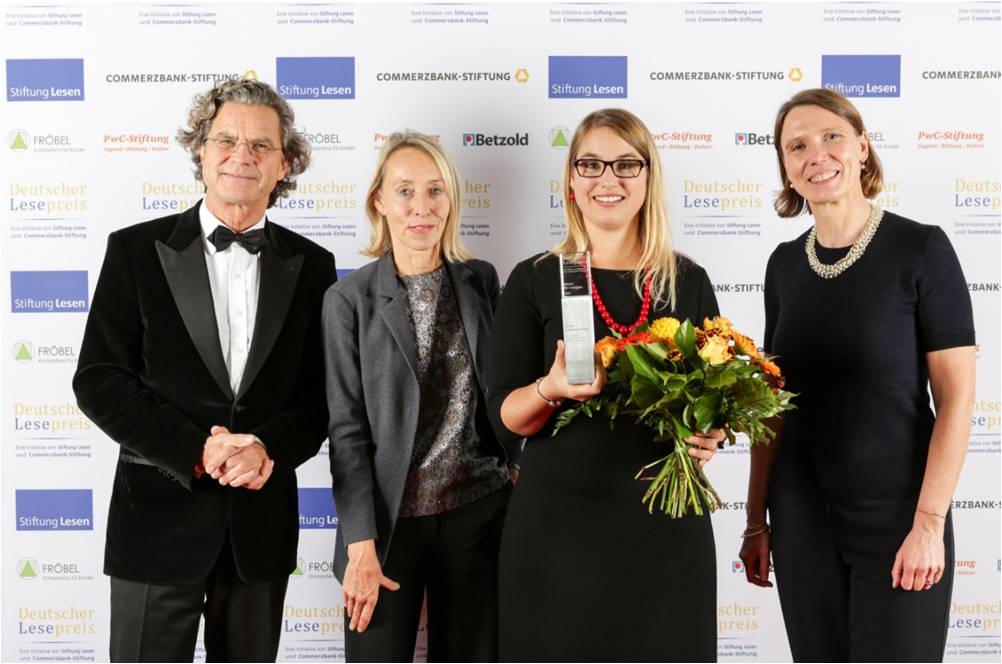Early identification of dyslexia through games
Early identification of dyslexia through games
Maria Rauschenberger was awarded the German Reading Award on 9 November for her idea “Playful and Early Screening with Dyslexia while playing a Game”. In her research she presents a method of the early detection of dyslexia through indicators not dependent on language, i.e., through playing.
As every year, the Lesen Foundation and the Commerzbank Foundation announced the German Reading Award which recognizes ideas that provide a beneficial effect for the promotion of reading, either through its approach, engagement or effect.

The German Reading Award has granted ten recognitions to ten projects spread across the four categories of the prize: ideas for tomorrow, individual engagement, community engagement, and support for reading in schools. On 9 November, at the Humboldt Carré in Berlin (Germany), the prizes were awarded at a ceremony, one of which went to Maria Rauschenberger, a PhD candidate at UPF working in the Web Science and Social Computing research group at the Department of Information and Communication Technologies (DTIC) at UPF. She was distinguished for a pilot study that belongs to her doctoral thesis and deals with the early identification of dyslexia in children through screen games: “Playful and Early Screening with Dyslexia while playing a Game”, for which the researcher proposes a totally new method that does not depend on language.
The directors of Maria Rauschenberger’s doctoral dissertation are the lecturers Ricardo Baeza-Yates, a member of the Web Science and Social Computing research group, and Luz Rello, an expert on dyslexia and a Doctor by Pompeu Fabra University, who currently works at the Carnegie Mellon University and is the founder of the organization Change Dyslexia.
Dyslexia is a neurologically-based learning disorder that hinders the ability to read and write. Early detection of this disorder is very important to prevent school failure and suffering in children’s lives. “Indeed, early detection of this disorder allows developing strategies so that boys and girls can improve their reading comprehension and, above all, strengthen their self-confidence”, Rauschenberger comments.
Currently, she is working to improve the application, “and also on a large-scale study to confirm the results of the pilot study, so if you are interested in this project, you can participate by playing this game from home. Children aged 8 to 12 with or without dyslexia can do so by sending an e-mail to the following address [email protected] to receive an invitation”, added the principal investigator of the project.
For further information about the projects that Maria Rauschenberger is carrying out, see:
